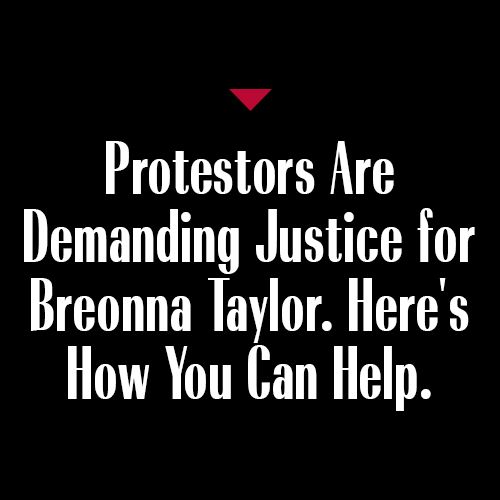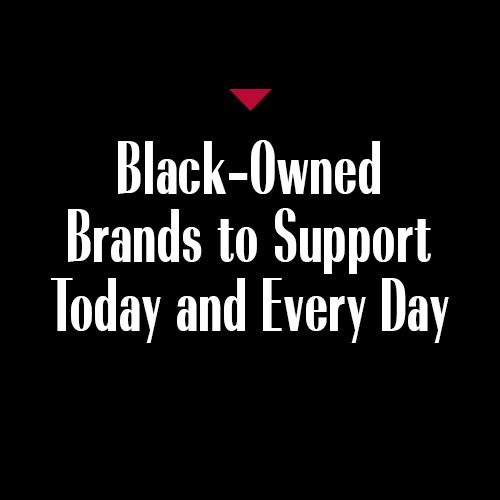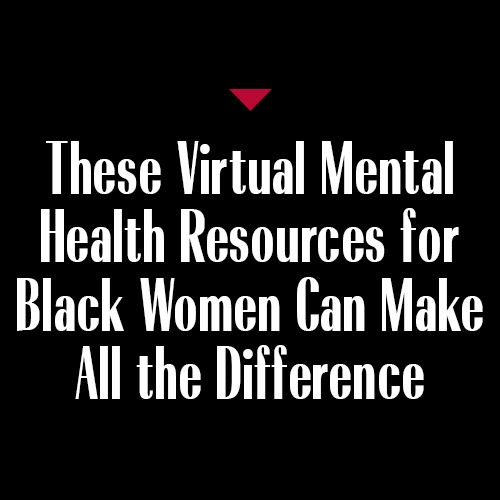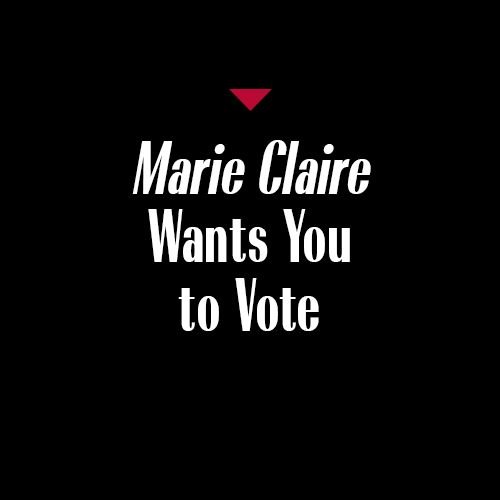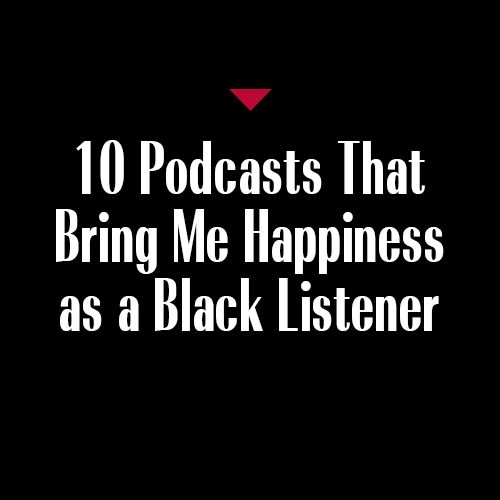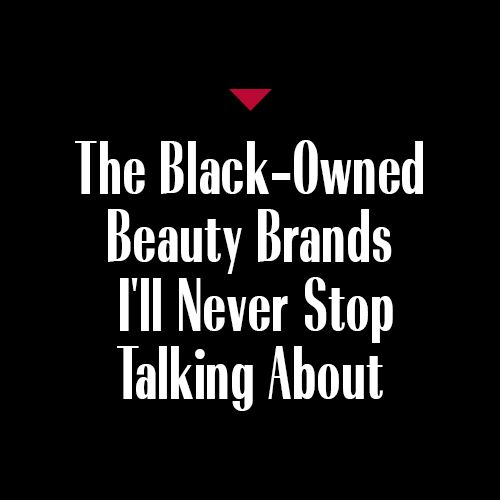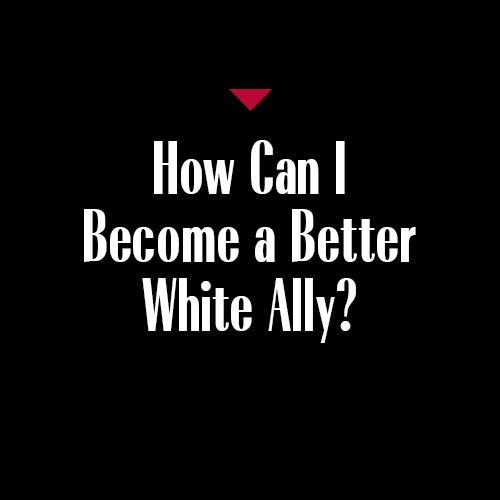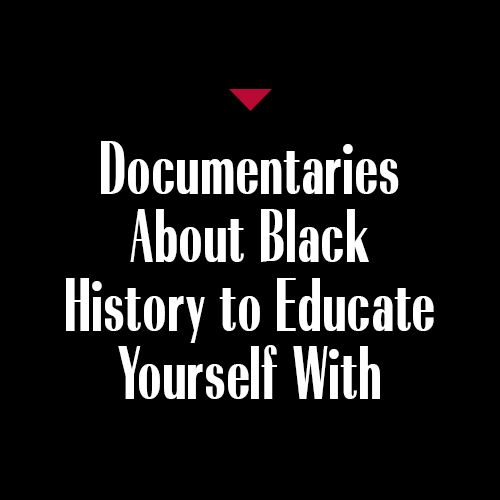How Can I Become a Better Ally?
Do not ask a POC to educate you. This work is on you.
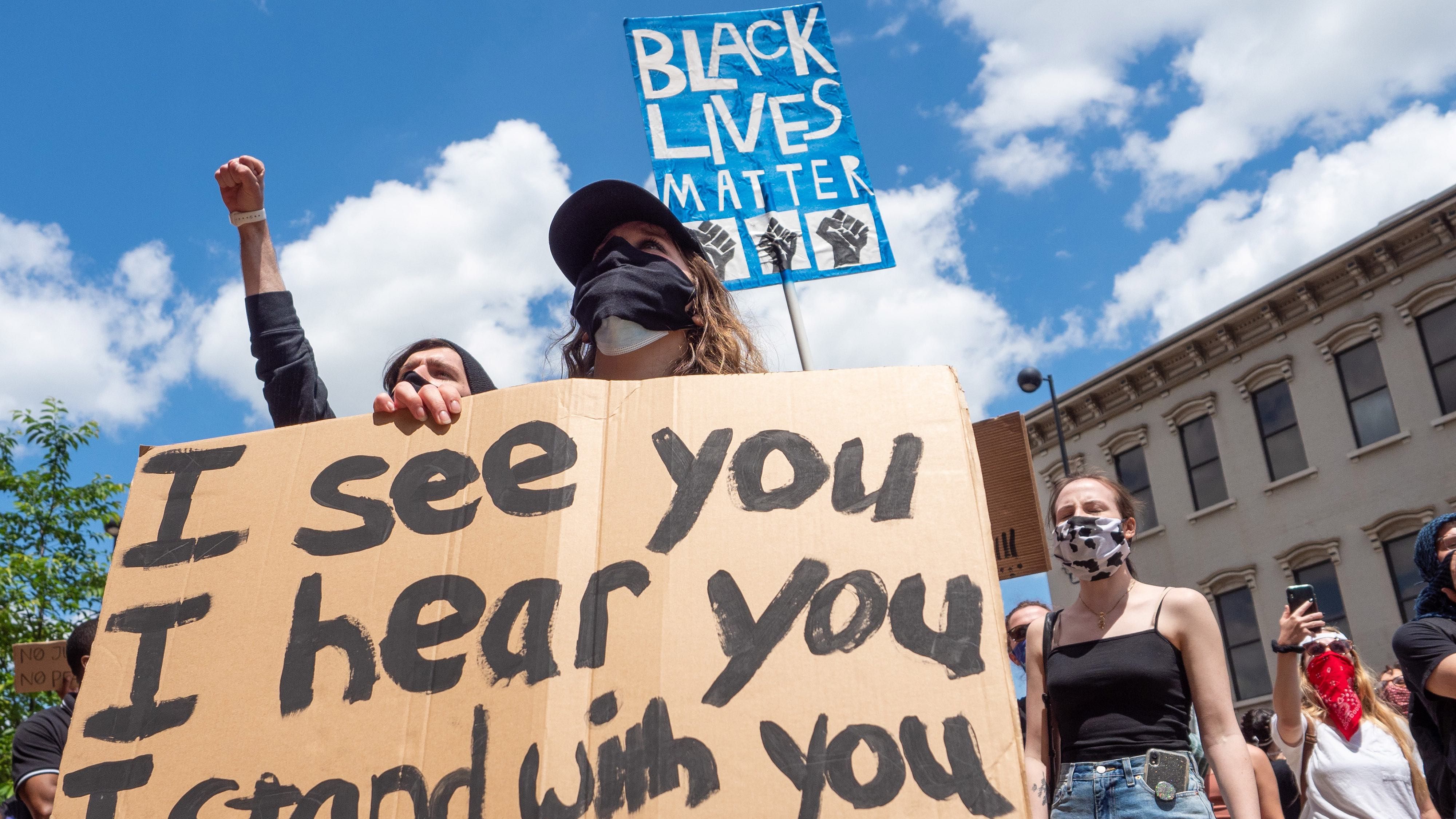
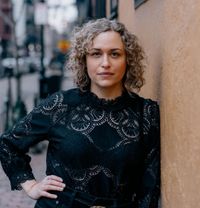
As the country grapples with its racist past and present, and protests against racial violence continue, many white people are making misinformed comments—from "Racism is in the past/I'm not racist" and "Everyone's having a hard time right now," to "My feelings matter and I must share them right now!" and even "All lives matter." While some of these comments might be well-meaning, more often than not, they can be extremely harmful. Questions about systemic racism are not bad or forbidden, and honest, open-minded dialogues about the resulting movements are encouraged, but only after you've done the legwork and research to learn about both.
There are plenty of resources available to allies (sometimes referred to as co-conspirators or accomplices) to educate themselves—remember, the BIPOC you're asking will likely have had to answer the same questions many, many times before. It's also important to realize that people of color suffer from prejudice and microaggressions that white people do not face, and recent events have only added to existing traumas and created new wounds.
It is our responsibility as allies to be as informed and educated as we can. Before we act, we must first investigate—especially since this moment is not about white people and our needs. We must make sure to work on the issue before coming with questions about race. And we must first check if the person we're asking has the mental and emotional bandwidth to discuss and share.
If you'd like to be supportive and don't know how, here are some good places to start.
Seek out fundamental teachings about racism and white fragility.
One way to begin the work is via Dr. Robin DiAngelo, who's been studying issues of race and engaging with white people about racism for decades, as with the below video:
A few of her most relevant points:
- There are false assumptions that white people make about racism and racial tension: "I am a good person/I am not a racist myself, and therefore I can absolve myself of any fault/I don't have to engage on this topic/I'm not the problem."
- Having this belief, and being confronted on racial issues, can often manifest white fragility: "anger, fear, and guilt, and behaviors such as argumentation, silence, and leaving the stress-inducing situation."
- Racism is a system into which all people are born. White people cannot be outside the system—in fact, we are deeply embedded in it.
- This system of racism inherently benefits white people—this is backed up by immense statistical data. Many white people have been taught that the perspectives of people of color do not matter in our day-to-day lives. Large-scale societal segregation exists—including in housing and schooling (and subsequently in work and life)—in many, many parts of the U.S.
- We did not personally create this system (even though we may have slave-owning ancestors). Nevertheless, it is our responsibility to understand it, educate ourselves about it, cultivate relationships with people of color and really listen (more on that below), and work to dismantle systems of inequality that exist all around us. Being anti-racist requires a lifetime of work.
It's worth isolating that last point: True allyship is not just talk. It is about the work. It is an active process. And that process belongs to everyone, regardless of whether we want to engage or not.
Get exclusive access to fashion and beauty trends, hot-off-the-press celebrity news, and more.
Another important point: DiAngelo's teachings should not be the end, but the start of one's anti-racist journey. Critics have aptly pointed out that looking for anti-racist solutions and joining the efforts of activism require hard work beyond watching a video or attending a workshop. This may be a way to understand the basics, but there's much more to do.
So you understand the basics, and you want to learn more. Now what? Many educators have made themselves available, and they're the perfect people to learn from if you're beginning to immerse yourself in this content. Writer, publicist, and sensitivity reader Mireille Harper, for example, has a handy primer about short- and long-term ways to be a better ally, which includes several anti-racism resources:
Follow anti-racist resources and educators.
A post shared by Mireille Cassandra Harper (@mireillecharper)
A photo posted by on
She has continued to recommend important resources, including ones in which she's contributed.
Anti-Racism Daily is another important follow, as it delves into the many, many different facets of racism (past and present). It goes beyond reporting on events as they happen and offer critical analysis for parsing out fact from fiction. Most important, it offers ways to take action once you've educated yourself:
A post shared by Anti-Racism Daily (@antiracismdaily)
A photo posted by on
For parents, The Conscious Kid is an exceptional resource to "promot[e] healthy racial identity development in youth" and amplify organizations that "disrupt racism in young children." They promote anti-racist and diverse books, encourage tough conversations at an early age, dispel disinformation and misinformation, and offer an intersectional approach to tackling systemic racism:
A post shared by The Conscious Kid (@theconsciouskid)
A photo posted by on
These resources, among others, help bring the work of anti-racism to our feeds and emails every day. These constant reminders are a vehicle so we don't just step in and out of discussions on race (which is part of white privilege), stop centering ourselves, and stay engaged with the tough and necessary work.
Engage with anti-racist content by filmmakers, writers, and creatives.
Anti-racist authors and resources exist in abundance, and the vast literature on the topic extends over centuries. Just to name a couple: modern authors like Ibram X. Kendi, Michelle Alexander, Ta-Nehisi Coates, Jaswinder Bolina, Nicole Chung, Cathy Park Hong, or icons like Toni Morrison, Maya Angelou, Zora Neale Hurston, and James Baldwin. And educating ourselves about important but lesser-known figures in the struggle for racial equality, like Marsha P. Johnson and Bayard Rustin, can also be enlightening.
In particular, Kendi has partnered with The Boston Globe and Boston University to revive antislavery newspaper The Emancipator to examine racism from a modern lens:
A post shared by Ibram X. Kendi (@ibramxk)
A photo posted by on
Director Ava DuVernay tackles racial issues in her work—including the devastating but necessary miniseries When They See Us, on Netflix—and has provided context on why these issues are so critical to our country. Her work inspired Agnes Gund, who was the subject of recent documentary Aggie. Gund saw DuVernay's documentary 13th about racial inequality as it pertains to incarceration and immediately started the Art for Justice Fund to support prison reform and incarcerated artists.
DuVernay's now providing more resources in connection with her works to answer this same question for others, "What do I do now [that I've watched and want to help]?"
The question I get most after folks watch my films: “What do I do now?” Today, we at @ARRAYNow launched #ARRAY101: dynamic learning companions for our film/TV projects. We begin with WHEN THEY SEE US. Download for free at https://t.co/wy2MXHP7Yx. And never stop learning. https://t.co/omxgAcZfjbMay 28, 2020
Support BIPOC organizations and representatives.
Monetary support is one avenue, and demonstrating is another, but you can also help by signing petitions, amplifying relevant causes, and educating yourself about the current political climate beyond the 2020 election. Listen to and support individuals fighting against systemic racism, like Stacey Abrams's efforts to combat BIPOC voter suppression, and engage with your own representatives making or advocating for change.
It's also important to note that developing one's anti-racist network does not, and should not, be isolated to this moment. This thread provides a good snapshot of non-profits that are doing particularly strong work:
We have compiled a list of non-profits taking action nationwide to fight for justice and resources to deepen your personal anti-racism work:🔗: https://t.co/iYPIrixwSS (1/7) pic.twitter.com/I0aRuY3pdRMay 30, 2020
Other groups like the American Civil Liberties Union, the NAACP's Legal Defense and Education Fund, and Black Lives Matter are good to follow since they share a wealth of resources on their websites and social accounts that you can draw from every day. They also help provide context on current events and ways you can effect change in your community.
Continue the work of dismantling racism.
The work doesn't stop here. From here, find ways to engage in your community, in your workplace, in your personal life—anywhere and everywhere. Avoid tokenism. Promote diversity, equity, and inclusion. Act as a mentor and support. Understand and avoid cultural appropriation, including through digital blackface and African American Vernacular English (AAVE). Explore the many, many ways you benefit from white privilege. Have tough conversations with relatives and friends. And much more.
As many educators note, we're going to make mistakes as we go. But failure is the best teacher. We must be willing to screw up, listen to candid and respectful feedback from people who know better, apologize without getting defensive (or trying to "prove" we are a good person), and move forward with the lessons learned. I have personally done (and am continuing to do) this—confront my own biases, upbringing, and white fragility—and I promise it gets easier.
Remember that becoming a strong ally is a progression. It takes time and constant energy and isn't a fixed target. Keep learning and growing: It's some of the most important work we can do.
Black Lives Matter
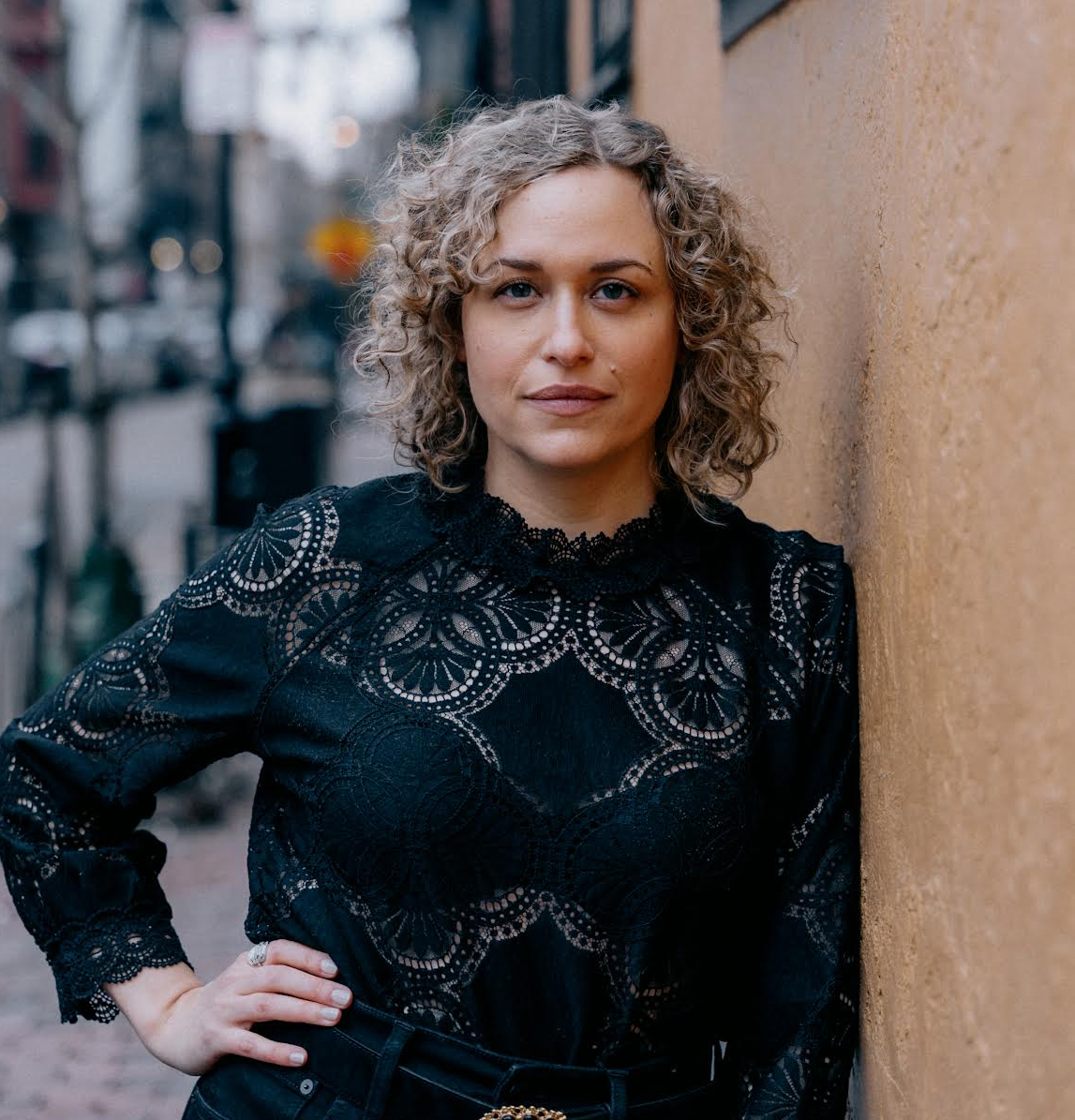
Katherine’s a contributing syndications editor at Marie Claire who covers fashion, culture, and lifestyle. In her role, she writes stories that are syndicated by MSN and other outlets. She’s been a full-time freelancer for over a decade and has had roles with Cosmopolitan (where she covered lifestyle, culture, and fashion SEO content) and Bustle (where she was their movies and culture writer). She has bylines in New York Times, Parents, InStyle, Refinery29, and elsewhere. Her work has also been syndicated by ELLE, Harper’s Bazaar, Seventeen, Good Housekeeping, and Women’s Health, among others. In addition to her stories reaching millions of readers, content she's written and edited has qualified for a Bell Ringer Award and received a Communicator Award.
Katherine has a BA in English and art history from the University of Notre Dame and an MA in art business from the Sotheby's Institute of Art (with a focus on marketing/communications). She covers a wide breadth of topics: she's written about how to find the very best petite jeans, how sustainable travel has found its footing on Instagram, and what it's like to be a professional advice-giver in the modern world. Her personal essays have run the gamut from learning to dress as a queer woman to navigating food allergies as a mom. She also has deep knowledge of SEO/EATT, affiliate revenue, commerce, and social media; she regularly edits the work of other writers. She speaks at writing-related events and podcasts about freelancing and journalism, mentors students and other new writers, and consults on coursework. Currently, Katherine lives in Boston with her husband and two kids, and you can follow her on Instagram. If you're wondering about her last name, it’s “I go to dinner,” not “Her huge ego,” but she responds to both.
